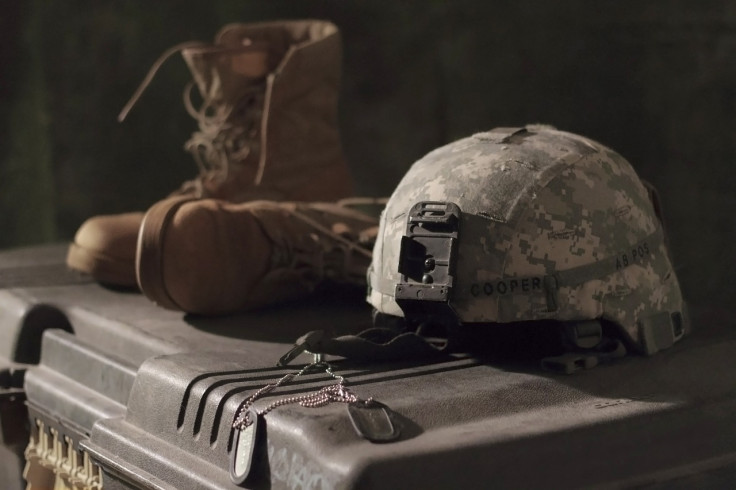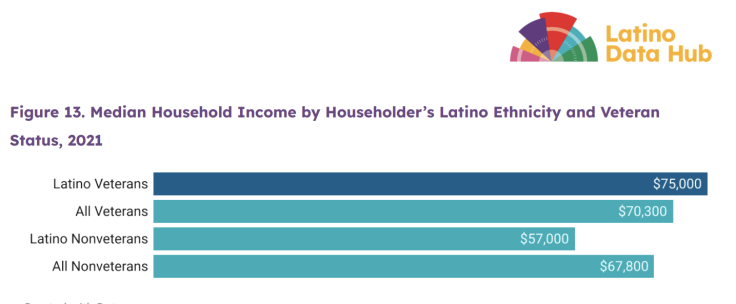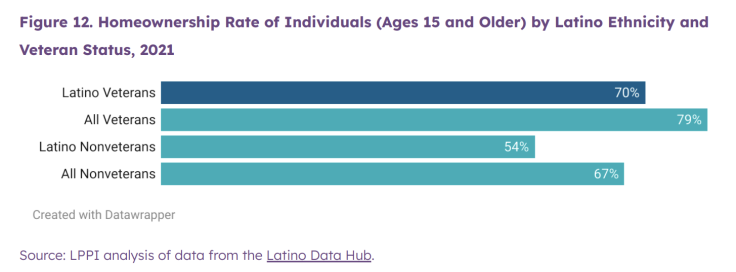
Latino veterans are, on average, doing better than non-Latino veterans in different areas following retirement from the military, as well as seeing many benefits from their service which non-veteran Latinos often lack.
Latino Data Hub released a fact sheet on Nov. 8 detailing historical trends about Latino veterans. Notably, the data showed that Latino veteran households had a higher income than the average in 2021: concretely, Latino veterans had a median household income of $75,000, while the average was $70,300. Comparatively, the average median household income for all Latino non-veterans was $57,000, about three-quarters that of Latino veterans.

According to the study, military service has significantly narrowed the homeownership gap for Latino veterans. 70% of Latino veterans reside in owned homes, compared to 54 percent of Latino non-veterans owning a home. Latino veterans also owned homes on average more than all non-veterans, with 67 percent of non-veterans owning a home.

The data also showed there is a great benefit of healthcare from being a Latino veteran. Only five percent of Latino veterans were uninsured, compared to 23% of non-veteran Latinos being uninsured. This reflects national data from the U.S. Census Burea, showing that Latinos are the least insured group in the U.S.
The Latin Times spoke with one Latino man who is a living representation of the data, showcasing his prosperity a Latino veteran.
Steve Castillo is Mexican-American and Salvadorean and is an Army Veteran who served overseas until he got hurt in combat. He said enlisting at 17 and entering the military at 18 set him up with discipline that he still carries with him to this day, from simple things like hygiene to getting up every day at 5 a.m. Additionally, he said being in different countries and in combat gave him newfound humility.
"When you get to that level of humility, it opens your mind to be more receptive, to not only advice from people who are older than you but people who aren't necessarily part of your flock. Your perspective grows and changes. For me, that was the underlying tone of the biggest benefit from being in the military," Castillo said. "If you were to add in the free college tuition, the homeownership program or the VA home loan program, and then the health care if you were injured in combat, adding all those factors, it was absolutely beneficial for me and my growth. I would say it's a huge attribute to my success."
Castillo earned a bachelor of science in accounting and a minor in business management, and he now works as an accountant and helps manage some operations at his workplace. He said he lives a comfortable life now where all of his bills are paid every month and he can save, but he said his ambition always tells him to strive for more. With his success, which he said he wants to say humbly, he now owns his own home as well as other properties.
In addition to Castillo's well-paying job and his education, he said the military provides resources that help people understand how to own a home. He said he believes his non-veteran Latino counterparts might not have had those same resources due to the lack of information from Latino parents. Castillo's thought echoes the data showing that 46 percent of non-veteran Latinos did not own homes.
© 2025 Latin Times. All rights reserved. Do not reproduce without permission.





